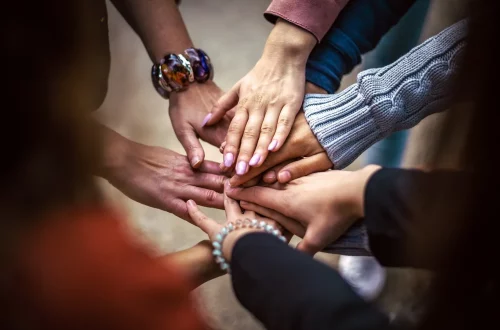
Exploring the Meaning Behind Something Inked: Tattoos and Their Stories
Tattoos have long been more than mere body art; they serve as profound expressions of identity, culture, and personal narratives. Throughout history, various civilizations have embraced tattooing, each infusing their designs with symbolic meanings that resonate deeply within their communities. This practice transcends aesthetic appeal, intertwining itself with the life stories of individuals, often representing pivotal moments, cherished memories, or significant milestones. The inked designs can evoke a wide range of emotions, from empowerment to nostalgia, and they can serve as a permanent reminder of experiences that shape who we are.
As societies evolve, so too does the perception of tattoos. Once stigmatized in many cultures, the modern era has seen a remarkable shift, with tattoos becoming a mainstream form of self-expression. Whether adorned by celebrities, artists, or everyday individuals, tattoos are now celebrated for their artistry and the personal significance they carry. Each tattoo tells a story, encapsulating the essence of the wearer’s journey, beliefs, and values. The intricate designs can range from simple symbols to elaborate works of art, and the motivations behind getting them can be as diverse as the people who wear them.
In exploring the world of tattoos, one uncovers a rich tapestry of meanings and stories that illustrate the complexity of human experience. From cultural symbols to personal mantras, each tattoo holds a unique significance that is often as intriguing as the design itself.
The Cultural Significance of Tattoos
Tattoos have been an integral part of various cultures around the globe, each with its own unique history and significance. In many indigenous cultures, tattoos serve as rites of passage, marking significant transitions in a person’s life. For example, in Polynesian culture, tattoos, or ‘tatau,’ signify social status, family lineage, and personal achievements. The intricate designs tell stories of ancestry and heritage, representing a deep connection to one’s roots and community.
In Japan, tattoos have a long and complex history, often associated with the Yakuza, the Japanese organized crime syndicate. However, traditional Japanese tattoos, or ‘irezumi,’ are revered for their artistic qualities, often depicting mythical creatures, nature, and spiritual themes. These tattoos can take years to complete and are imbued with deep cultural meanings, often symbolizing protection, strength, and resilience.
In Western cultures, tattoos have also undergone a transformation. Once considered the mark of rebels or outcasts, tattoos have gained acceptance as a legitimate form of self-expression. Many people choose tattoos to honor their heritage or commemorate loved ones. The designs often reflect personal stories, beliefs, or milestones, serving as living memorials that connect the individual to their past.
The cultural significance of tattoos is not just limited to their origins; it extends to the meanings that modern wearers attribute to them. In contemporary society, tattoos can symbolize empowerment and individuality, allowing people to reclaim their bodies and express their unique identities. As societal attitudes continue to shift, tattoos have become a canvas for storytelling, bridging personal experiences with broader cultural narratives.
For many individuals, tattoos are deeply personal artifacts that encapsulate their life stories and experiences. Each design often reflects significant events, relationships, or philosophies that shape a person’s identity. A tattoo can serve as a powerful reminder of a transformative moment, a lesson learned, or a loved one lost.
Consider the person who gets a tattoo to honor a family member who has passed away. The design may incorporate elements that were meaningful to that individual, such as a favorite flower or a quote they often expressed. This tattoo not only serves as a tribute but also as a source of comfort, allowing the wearer to carry a piece of their loved one with them always.
Other tattoos might represent personal milestones, such as overcoming adversity or celebrating achievements. A person might choose to ink a phrase or symbol that resonates with their journey toward self-acceptance or recovery from a challenging period in their life. These tattoos can empower individuals, reminding them of their resilience and the strength they possess to navigate life’s challenges.
Moreover, many people use tattoos as a form of self-expression to assert their beliefs or values. For instance, someone might choose a design that symbolizes freedom, love, or spirituality, serving as a constant reminder of what they stand for. In this way, tattoos become more than just body art; they evolve into affirmations of identity and purpose.
As the stories behind tattoos vary widely, each piece of ink serves as a testament to the experiences that shape us. They allow individuals to share their journeys, connect with others who may have similar stories, and foster a sense of community among those who wear their narratives proudly on their skin.
The Artistry of Tattoos: A Form of Expression
Tattoos are not just personal narratives; they are also a vibrant form of art that showcases creativity and skill. The artistry involved in tattooing has evolved significantly over the years, with tattoo artists now regarded as skilled professionals and creatives. The range of styles and techniques available today is vast, allowing individuals to choose designs that resonate with their personal aesthetic.
From traditional styles like American Traditional and Japanese Irezumi to modern techniques such as watercolor and geometric tattoos, the artistry behind tattoos is diverse. Artists often specialize in particular styles, honing their skills to create intricate and visually stunning designs. This specialization allows for a high level of detail and creativity, making each tattoo a unique work of art.
Moreover, the process of selecting a tattoo can be an artistic journey in itself. Many individuals collaborate with their tattoo artists to create custom designs, blending personal meanings with the artist’s creative vision. This collaborative process often results in a piece that is not only visually appealing but also rich in significance.
Tattoo conventions and exhibitions have also become popular, showcasing the talents of artists from around the world. These events celebrate the artistry of tattoos, providing a platform for artists to display their work and connect with fellow enthusiasts. The growing appreciation for tattoo artistry has led to a flourishing community of artists and collectors, further elevating the status of tattoos as a legitimate form of artistic expression.
As tattoos continue to gain acceptance in mainstream culture, the artistry behind them is increasingly recognized and celebrated. This shift not only highlights the skill of tattoo artists but also reinforces the idea that tattoos are powerful forms of self-expression, capable of telling stories that resonate deeply with both wearers and observers.
In conclusion, tattoos encompass a rich tapestry of meanings that go beyond mere body art. They serve as cultural symbols, personal narratives, and stunning artistic expressions, each with its own story to tell. As society continues to embrace tattoos, their significance as a form of self-expression and identity will undoubtedly continue to evolve, reflecting the diverse experiences and stories of individuals around the world.
*Disclaimer: This article is not intended as medical advice. For any health-related concerns, please consult with a qualified healthcare professional.*




